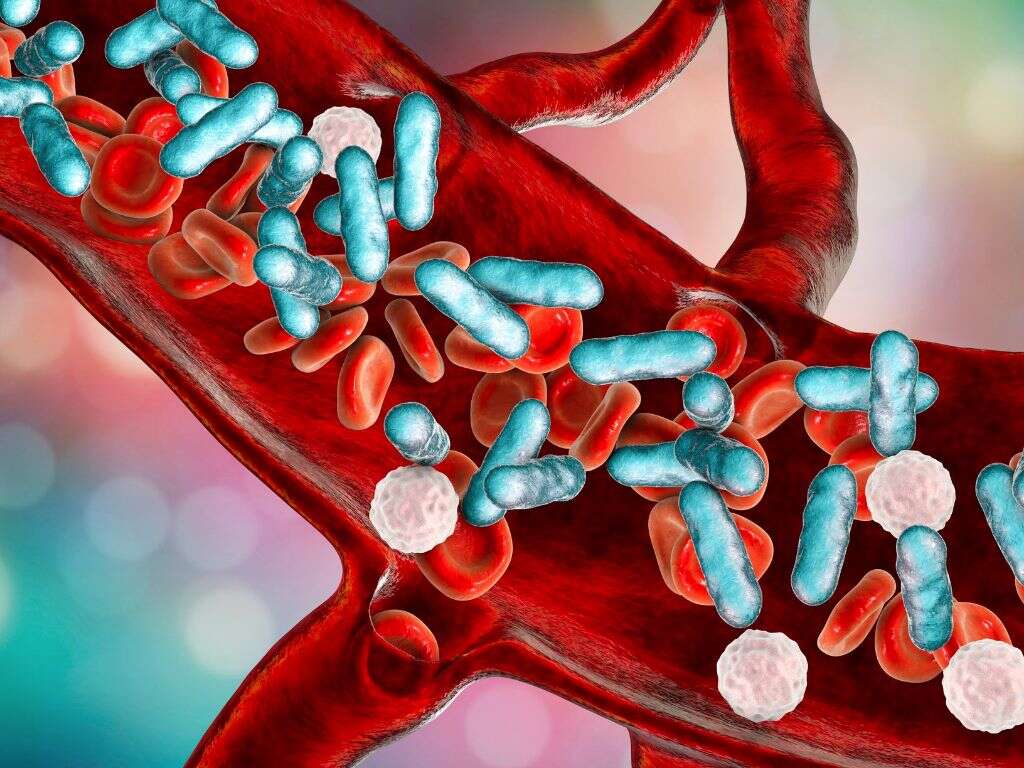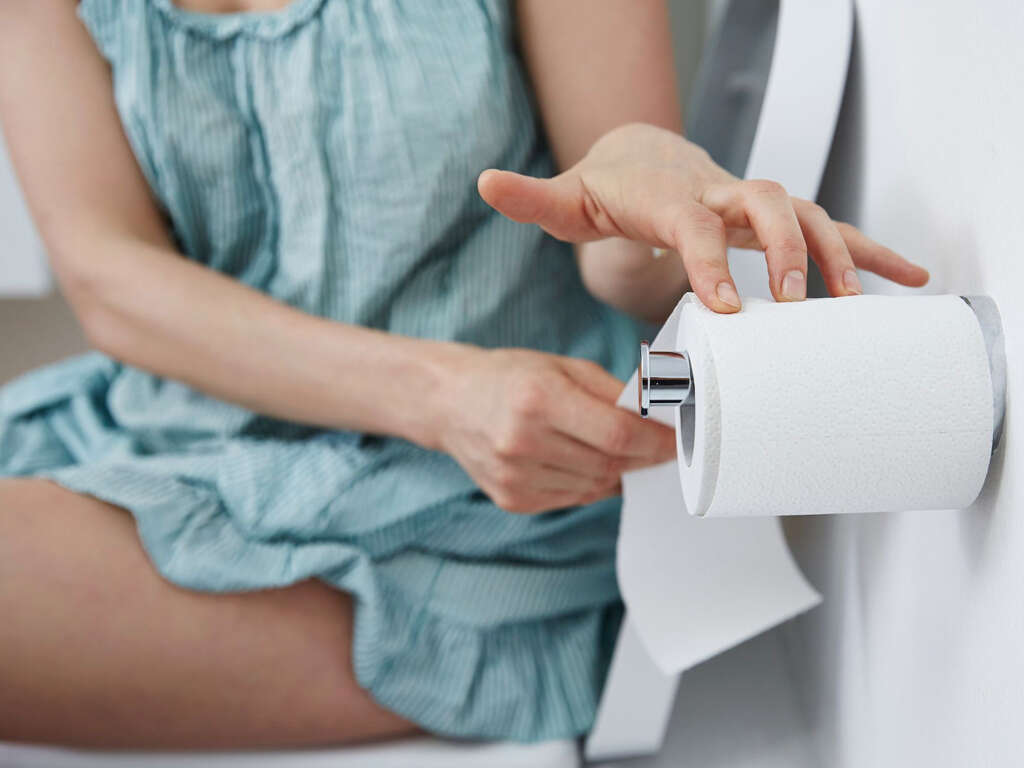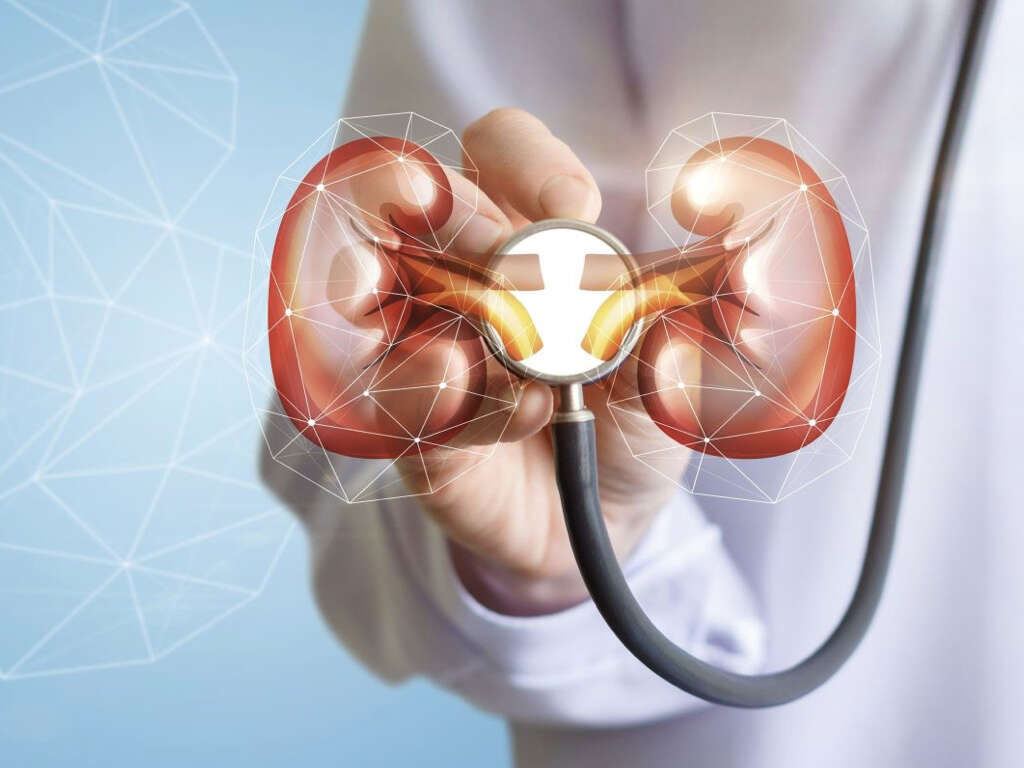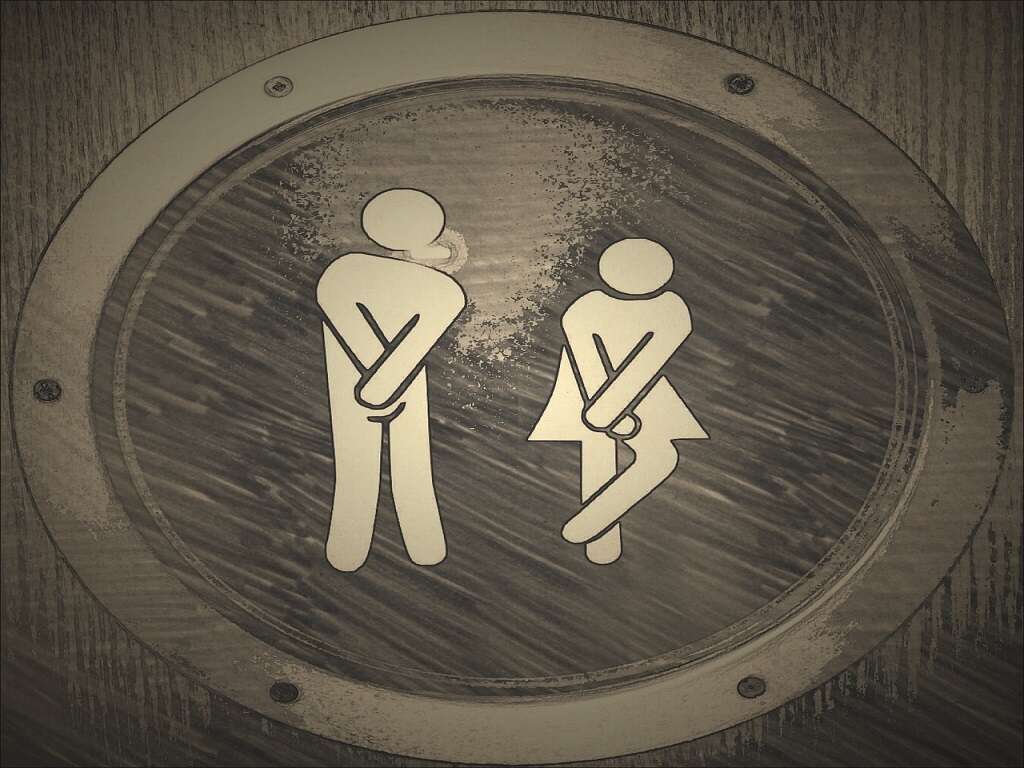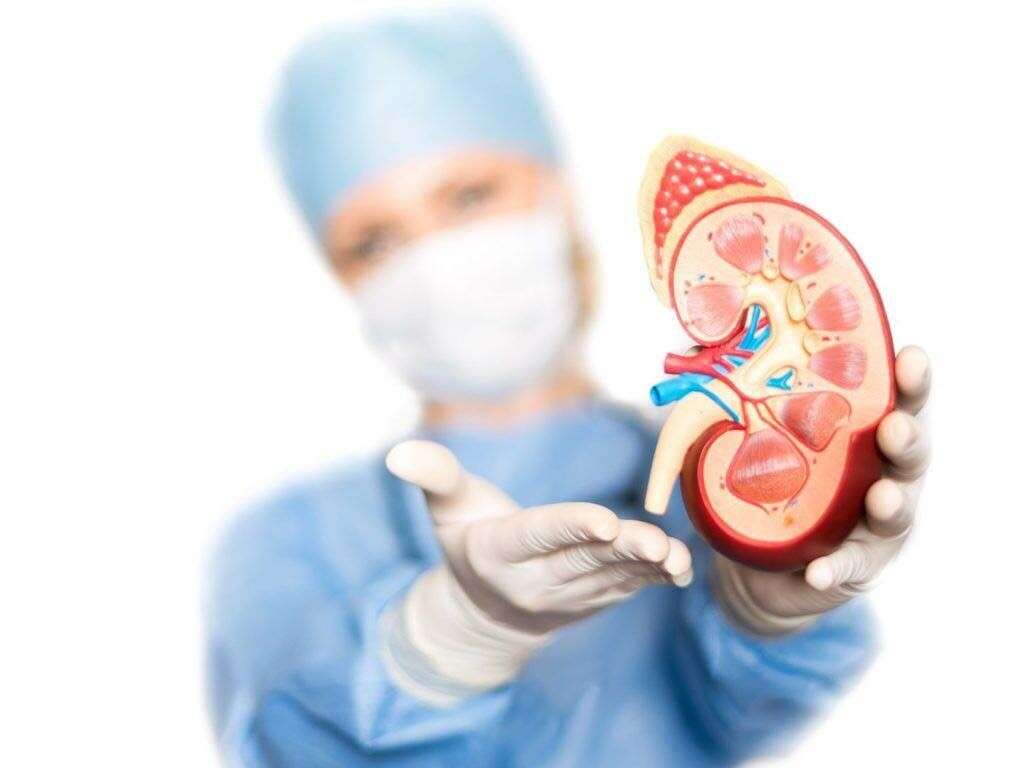10 Kidney Disease Symptoms
Many people worldwide are living with kidney disease, but the problem is that most of them don’t know that they have it. Even though there are a lot of physical signs and symptoms related to kidney disease, often these symptoms are attributed to other medical conditions, which delays the diagnosis and the necessary treatment.
The signs and symptoms related to kidney disease tend to develop at a very late stage, when kidney failure has already started to occur and when there is permanent damage to the kidney tissue.
People who are at risk of developing kidney disease, such as those who have diabetes, high blood pressure, elderly people, or a family history of kidney failure, should undergo regular checkups for kidney disease. Below are 10 kidney disease symptoms that one should be aware of.

Symptom #1: Urine Color Changes
Normally, urine should be pale yellow in color due to the fact that it contains urochrome, a substance produced when hemoglobin gets broken down. In certain cases when there is a kidney problem, urine might change its normal color. If dark yellow urine is present, this means that you are dehydrated and that you should drink more fluids. Brown or even black urine is also possible and, in this case, it is caused by liver conditions like hepatitis, cirrhosis, a blockage of the bile duct, hemolytic anemia, and melanoma. However, certain foods like fava beans can also turn urine brown. Having orange urine is mostly related to the use of certain medications like rifampin, isoniazid, and riboflavin. Having a milky white urine is related to urinary tract infections.
Urine can change its color into a light pink, red, or very dark red as well. This means that there is a presence of blood in urine, medically known as hematuria. Urinary tract infections, kidney stones, prostate enlargement in men, but also cancer, can lead to the presence of blood in urine. Whenever there is a presence of blood in the urine, you should consult your doctor immediately and determine the underlying cause of this symptom.
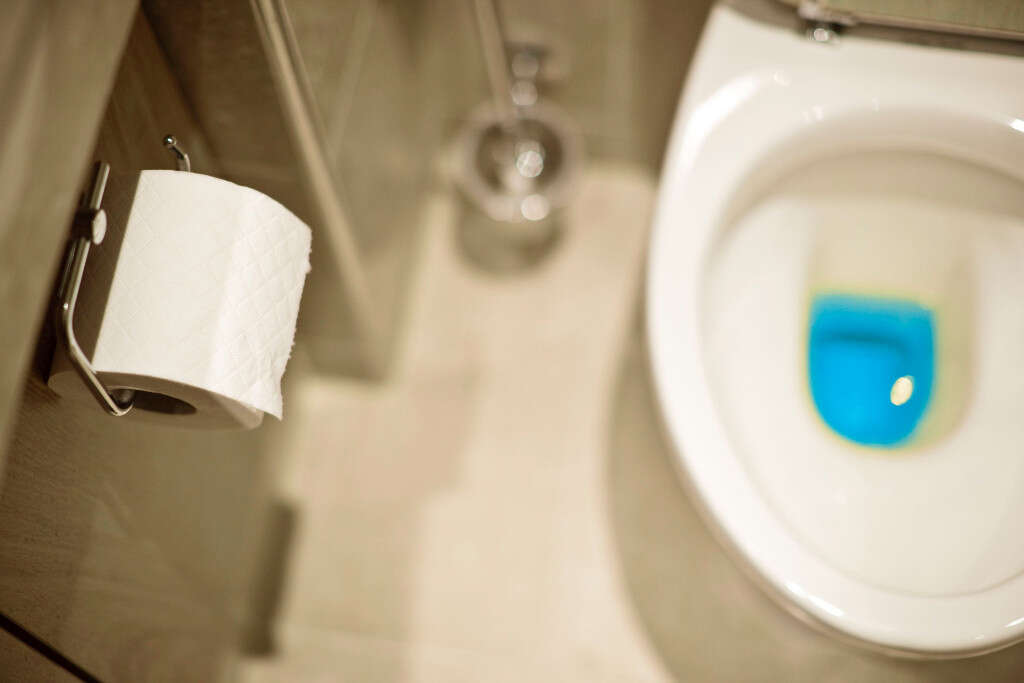
Symptom #2: Foamy or Bubbly Urine
Having foamy or bubbly urine is definitely a sign that something is not quite right with your kidneys. It means that there is a presence of albumin, a protein in the urine.
However, foamy or bubbly urine is not always a sign of kidney disease. In cases when the bladder is full, the urine can become foamy as the urine will stream faster and forcefully while urinating. Pregnancy can also lead to foamy or bubbly urine, as well as dehydration.
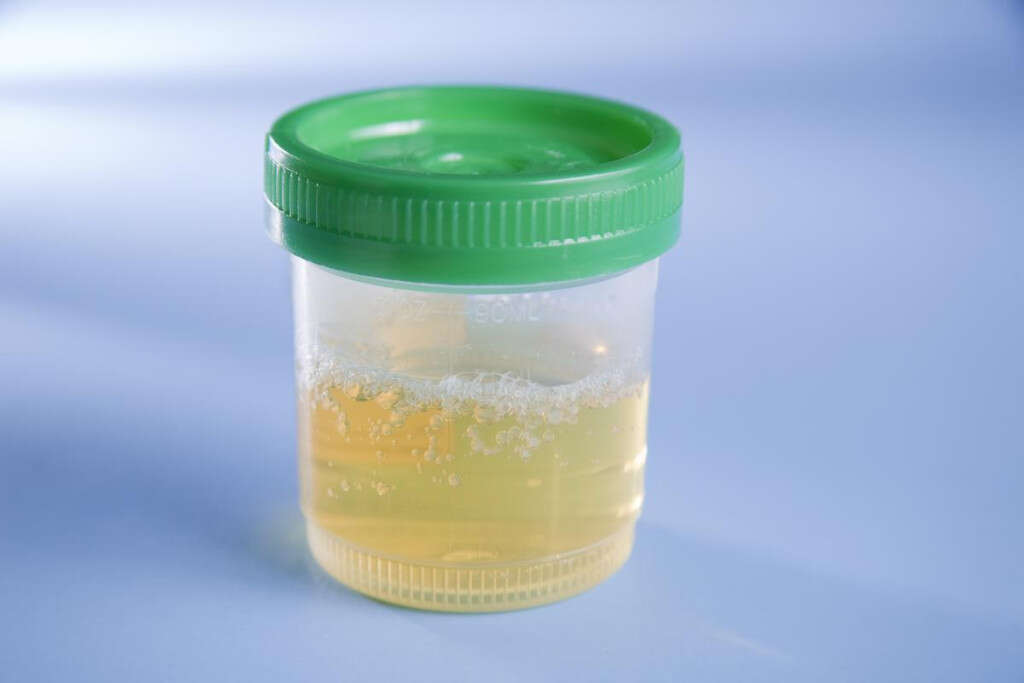
Symptom #3: Urination Problems
Frequent urination is a common problem that many people face in their life due to a certain condition of the urinary system. Often, frequent urination is a sign of a urinary infection, regardless if it is an infection of the lower (urethra, bladder) or upper (ureters, kidneys) part of the urinary system, as well as, a symptom of an enlarged prostate in men.
Another symptom that patients with kidney disease complain about is having painful urination. Frequent urination during the night is another symptom of kidney disease, otherwise known as nocturia.

Symptom #4: Back or Flank Pain
The kidneys are located on either side of the spine in the back. In cases of kidney disease, back or flank pain is common, often known as a renal colic.
Renal colic is mostly caused by kidney stones, especially if they block the ureter. It is characterized by an intense pain on the back or flank, and it could be uni or bilateral depending if one or both of the kidneys are affected. The pain tends to spread to the lower abdomen and groin area. It is also often associated with nausea and vomiting. A characteristic of renal colic is that the pain comes in waves lasting from a couple of minutes up to one hour.

Symptom #5: Ammonia Breath and Metal Taste in the Mouth
A buildup of waste products, especially of urea due to kidney disease, can lead to another common symptom, which is an ammonia breath or a bad breath, as well as, a change in the taste, referred by patients as a metal taste in the mouth. Food aversion is also common, mostly to protein foods like meat.
Having ammonia breath and a metal taste in the mouth is a serious condition and therefore it is recommended to get medical help in order to rule out kidney problems. Other conditions that can lead to ammonia breath besides kidney disease are dehydration and high blood pressure, among others.

Symptom #6: Fatigue
Fatigue or being tired all of the time is a common symptom of kidney disease. Fatigue is often associated with many other health conditions, but if it is associated with other symptoms like foamy or bubbly urine, brown, red, or purple urine, frequent urination, and painful urination, then you should consider kidney disease.
Healthy kidneys produce erythropoietin, an important hormone in the normal functioning of the red blood cells and their role as carriers of oxygen throughout the body. In cases when there is kidney disease and they don’t function normally, the production of this important hormone is impaired, which leads to having fewer oxygenated red blood cells. This means that the entire body will receive less oxygen than necessary. Lack of erythropoietin due to kidney disease leads to the development of anemia. The lower the red blood cell count, the more tired a person will be.

Symptom #7: Shortness of Breath
Shortness of breath is another symptom that can be seen in patients with kidney disease, especially in serious medical conditions due to an accumulation of fluid in the body, including in the lungs. In cases when the kidneys don’t function as they should, fluids will start building up in the human body, as fluid and other waste elimination is the main kidney function.
Another factor that contributes to shortness of breath is anemia, which can leave the body tissues and organs starved of oxygen.

Symptom #8: Dry and Itchy Skin
Kidneys are known to have many important roles in the human body. Their main function is the removal of waste products, as well as removal of excess fluid, maintaining the right amount of minerals, producing red blood cells, and regulating the normal blood pressure.
In advanced kidney disease, when their function is impaired, they can no longer keep the right balance of minerals and nutrients in the blood, so some of them start accumulating in body tissues, leading to dry and itchy skin.

Symptom #9: Swelling
In cases when the normal kidney function is impaired, the removal of fluid from the body through urination is affected. For this reason, there will be an accumulation of fluid and sodium in the body.
The swelling, medically known as edema, usually occurs in the feet and around the eyes. This is commonly known as having a puffy face.

Symptom #10: Poor Appetite
Poor appetite is another common symptom of those who have kidney disease, especially those at end-stage renal disease and who require dialysis. Having a poor appetite is also commonly associated with many health conditions.
Poor appetite is often associated with other gastrointestinal symptoms like nausea, vomiting, and malnutrition, which might seem like a gastrointestinal problem and not a kidney problem. However, if you have had a poor appetite for quite some time, and if this symptom is associated with other signs and symptoms, a detailed medical examination is necessary to determine the real underlying cause and to get the necessary medical treatment.




